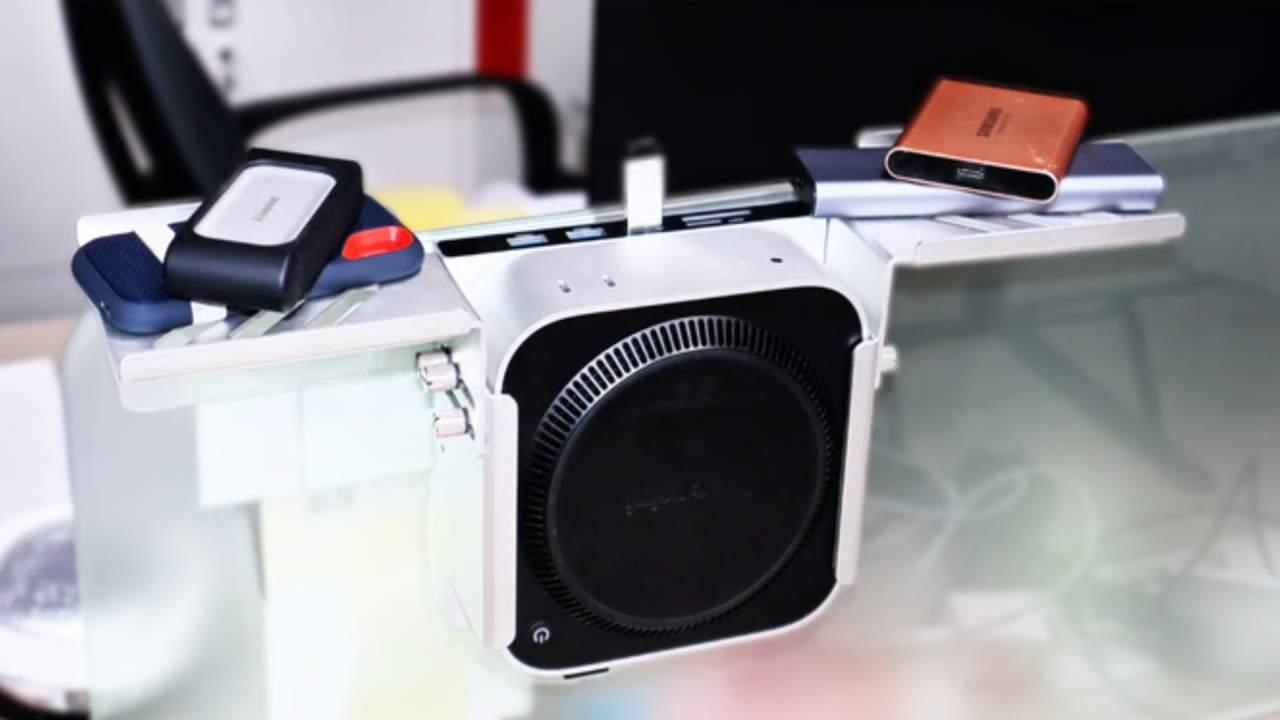
- The Bygital stand hides your Mac mini instead of making it the centerpiece
- The aluminum alloy construction helps with cooling and keeps the setup visually clean.
- Dual USB-C and HDMI 2.1 ports turn the dock into a powerhouse
The Bygital dock takes a different approach to desktop design, with the company describing this device as a sort of “exoskeleton” for the Mac mini.
This dock can mount the device behind a monitor, under a desk, or even on a wall, and it doesn’t feature the Mac mini M4 as the centerpiece of the system.
It’s marketed as a fusion of base, stand, SSD expansion and VESA mount, but its most striking feature isn’t technical at all, it’s the decision to hide the product it’s supposed to improve.
A dock that hides instead of showing off
Bygital combines multiple features that most Mac mini users would normally rely on separate adapters to achieve.
It comes equipped with HDMI 2.1 output at 4K 60 Hz, two USB-C host ports and three USB-A 3.1 ports that offer 10 Gbps transfer speeds.
This device also supports two USB-A 2.0 ports for peripherals such as keyboards and mice.
There’s also a card reader and an NVMe M.2 SSD enclosure that supports drives up to 8TB, although the SSD itself is not included.
This combination aims to turn the small Mac mini into what the creators call a “true desktop workstation.”
The base is constructed from an aluminum alloy and aims to improve airflow by placing the Mac mini vertically while keeping the vents clear.
It does not have internal fans, depending only on its orientation for cooling. While this could help with passive heat dissipation, it is unknown how it will perform under heavy workloads.
The most unusual visual feature is the pair of “wings” extending from the sides, designed as small shelves for decorative items such as miniature plants or figurines.
It’s an eccentric touch to what is otherwise marketed as a serious productivity tool.
Bygital’s focus on decluttering the workspace will appeal to those who value clean aesthetics, but the concept of hiding the computer could make its practical use less convenient.
The project on Kickstarter has already surpassed its modest crowdfunding goal of $2,000, raising around $2,024 with 16 backers and 22 days to go.
As for pricing, the “Super Early Bird” tier starts at $89, half the expected retail price of $179, while the “Early Bird” costs $99, about a 45% discount.
Its timeline extends from concept development in December 2024 to a planned ship date in January 2026.
Disclaimer: We do not recommend or endorse any crowdfunding projects. All crowdfunding campaigns carry inherent risks, including the possibility of delays, changes or non-delivery of products. Potential sponsors should carefully evaluate the details and proceed at their own discretion.
Follow TechRadar on Google News and add us as a preferred source to receive news, reviews and opinions from our experts in your feeds. Be sure to click the Follow button!
And of course you can also follow TechRadar on TikTok for news, reviews, unboxings in video form and receive regular updates from us on WhatsApp also.



